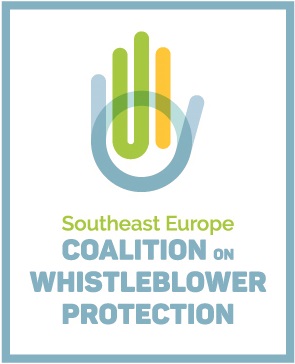author: Arta Tahiri
People emigrate looking for solutions. They go where they can find jobs and provide a more dignified life for themselves and their families, say experts in Skopje. Citizens of the countries of the Western Balkans, including Macedonia, migrate to the European Union (EU) countries.
This phenomenon has gripped not only Macedonia, but Kosovo also. In recent days, the most common on Kosovo TV are “rivers” of people going to Europe, deeply disappointed by the government, but hoping that the West will bring a better life in the future. Kushtrim Sadiku, journalist in the television Klan Kosova, for Inbox 7 says that the government and other institutions of Kosovo have not given a precise number of Kosovars who seek their fortune in the European Union as refugees or asylum seekers. However, according to him, what is known is that there are partial data, which clearly show the tendency of increasing the number of those who see asylum as their only hope, although it is unlikely a Kosovar to obtain it.
“Eurostat and UNHCR data have given a figure of 23 thousand Kosovan citizens who have arrived in the EU countries and applied for asylum. The number of 23 thousand figured until September without considering the large influx in November and December 2014. Even if we know that these data are not definitive, this number is greater than 2013 to more than 3000 people. The trend of increasing the number of Kosovo asylum seekers appears in the report of the Federal Office for Migration and Refugees in Germany, where only during November 1306 Kosovars applied to obtain the status of asylum seekers”, said Sadiku.
World Bank: 447 thousand citizens out of Macedonia
Dragan Tevdovski, Professor at the Faculty of Economics at the University of Ss Cyril and Methodius in Skopje and also chairman of the Economic Committee of Social Democratic Union of Macedonia (SDSM), believes that in Macedonia there is a process of mass emigration, which has recently received serious proportions.
Tevdovski prefers to speak in figures. “There are already data from relevant international institutions. The World Bank estimates that the number of Macedonian citizens living abroad is 447 thousand people. According to Eurostat, in the period from 1998 to 2009, only in the countries of the European Union annually migrated 10 thousand people on average. Surely this trend continued in the last five years, not only in Europe but also in North America and Australia”, said Tevdovski.
Tevdovski thinks that the great migration was the reason why the current government did not conduct the census in 2011, because it would have shown alarming figures concerning the population of Macedonia.
The Professor at the Faculty of Economics at the South East European University (SEEU) Shenaj Hadzimustafa thinks that it is most tragic that a number of young people see their future for proving their working abilities abroad.
Partisanship in the public sector, low incomes and migration
“The main reasons for citizens’ migration is the inability to find a job due to lack of development of the real sector, low incomes that can be made here, and partisanship in employment in the public sector”, said Hadzimustafa.
Otherwise, according to Tevdovski, the main reason for emigration is the low standard and the difficult economic situation.
“People migrate looking for solutions. They go where they can find jobs and provide a more dignified life for themselves and their families”.
According to the latest data from the World Bank, 9.1% of Macedonian citizens live on less than two dollars a day. These 2 dollars are about 40 denars, because it is about international dollars (virtual currency that can be used to buy goods and services in the domicile country – in this case Macedonia, and with that amount you can buy the same quantity of goods and services in the USA). This means that 180,000 people in Macedonia live on less than 40 denars per day. This is Macedonian reality”, said Tevdovski.
He makes a comparison with the second country in Europe after poverty, Moldova. He adds that this country has a double lower poverty rate, 4.4%, while in 2006 this rate was 14%. Tevdovski further explains that poverty in Macedonia is at the level of several Latin American countries such as Brazil and Ecuador, where that rate is 10.5%, and in 2006 was 14%. More concerning than the rate of poverty is the fact that it is constantly growing.
If in 2006 it was 4.6%, the number of poor in just four years doubled, analyzes economic expert Tevdovski, noting that poverty in the three mentioned countries is decreasing steadily.
In Kosovo, the difficult economic situation is also the main reason for the escape of citizens in the European Union (EU).
“The loss of hope is already 15 year long waiting for the situation to change. Do not forget that unemployment in Kosovo, according to the government’s own statistics, is 30 percent, and civil organizations say unemployment is above 40 percent. Both figures speak for a huge problem of Kosovo society. I do not think there can be a large conspiracy that so many people often put their lives at risk and leave the country”, said Sadiku.
According to him, the great flux was also aided by the free movement of citizens of Kosovo via Serbia as a transit country for all those who see Hungary as the first stepping point before arriving in other countries, such as Austria, Germany, France, Belgium, the Netherlands or elsewhere. But Sadiku highlights another fact:
“It is normal that when there are such parameters, on the site to appear smuggling criminal groups as Albanians, Serbs and Hungarians, who make up the human trafficking chain”.
Blocking integration processes affects the migration of population
On the other hand, Professor Shenaj Hadzimustafa assesses that blocking integration processes affects the migration process.
“Standing in one place for years means that we have not moved forward in meeting the criteria, in particular the quality of institutions, such as the rule of law, the efficiency of the judicial system, overcrowded public administration, limited freedom of the media, which reduces quality of life of all citizens of Macedonia and is the reason why a lot of people seek their chances abroad”, says Hadzimustafa.
Expert Tevdovski, however, says that both NATO and the EU membership is required to ensure the future of the country, when it is obvious that the countries of the region progress in this segment, but it is a mistake to think that this membership alone will change the situation and it is best shown by the situation in Greece. According to Tevdovski, parallel with European integration, several key pillars must rise.
“The first pillar is a prerequisite for all – democracy and the rule of law must return. The second pillar should have a priority in economic development, SMEs, long-term investments and wage increases. The third pillar should dismantle neoliberalism and replace it with a proper social country. The fourth pillar should put an end to both directions of building the nation, the Macedonian and Albanian and replacing them with common Macedonian nation. NATO membership will strengthen security in the country, and the European Social Fund itself, as a result of EU membership, will bring tens of millions of Euros to fight unemployment”, said Tevdovski.
Statistics on the number of Macedonian immigrants worldwide National statistical organizations worldwide Country Number of immigrants YEAR DATA FROM:
LAST NUMBER OF REGISTERED IMMIGRANTS YEAR DATA FROM:
AUSTRIA 16473 Census 2006 Statistik Austria
16473 Census 2006 Statistik Austria
AUSTRALIA 83983 Census 2001
Australian Bureau of Statistics
81898 2001 Australian Bureau of Statistics
ASIA 210 Census 1994
Macedonian Ministry of Foreign Affairs
210 Census 1994
Macedonian Ministry of Foreign Affairs
AFRICA 78 Census 1994
Macedonian Ministry of Foreign Affairs
78 Census 1994
Macedonian Ministry of Foreign Affairs
BELGIUM 10667 01-01-2006 Belgian National Statistical Institute
10667 01-01-2006 Belgian National Statistical Institute
BOSNIA AND HERZEGOVINA 1596 Census 1991 Agency for Statistics of Bosnia and Herzegovina
447 Census conducted in 1994 by the Macedonian Ministry of Foreign Affairs GREAT BRITAIN 1284 Census 2001 British Office for National Statistics
1284 Census 2001 British Office for National Statistics
GERMANY 62295 Data from 2007 German Federal Statistical Office – Statistics Portal
62295 Data from 2007 German Federal Statistical Office – Statistics Portal
DENMARK 3147 Census 1994 State Statistical Office of RM
3007 Data from 1-1-2006 by the Kingdom of Denmark
ITALY 78090 Data from 2008 National Institute of Statistics of Italy
78090 Data from 2008 National Institute of Statistics of Italy
CANADA 31265 Census 2001 Statistics Canada
31265 Census 2001 Statistics Canada
NEW ZEALAND 621 Census 2001
Statistics New Zealand
597 Data from 2006
Statistics New Zealand
NORWAY 3045 Data from 1.1.2007
Statistics Norway
3045 Data from 1.1.2007
Statistics Norway
POLAND 300 31.12.2005 Central Statistical Office of Poland
286 31.12.2005 Central Statistical Office of Poland
RUSSIA 54 Census 1994
State Statistical Office of RM
54 Census 1994
State Statistical Office of RM
USA 43783 Census 2000 United States Census Bureau
43783 Census 2000 United States Census Bureau
SLOVENIA 2611 Census 1994 State Statistical Office of RM
1009 Census 2002 Statistical Office of the Republic of Slovenia
SERBIA 47200 Census 1994 Macedonian Ministry of Foreign Affairs
25847 Census 2002 Statistical Office of the Republic of Serbia
TURKEY 1154 Data from 01.01.2007 Turkish Statistical Institute
1154 Data from 01.01.2007 Turkish Statistical Institute
UKRAINE 9 Census 1994 State Statistical Office of RM
9 Census 1994 State Statistical Office of RM
FINLAND 676 31-12-2008
Statistics Finland
676 31-12-2008
Statistics Finland
NETHERLANDS 1091 Census 1994
State Statistical Office of RM
907 Census 2001
Statistics Netherlands
CROATIA 8842 Census 2001
Croatian Central Bureau of Statistics
4270 Data from 2001
Croatian Central Bureau of Statistics
CZECH REPUBLIC 1746 31-08-2007 Czech Statistical Office
1746 31-08-2007 Czech Statistical Office
SWITZERLAND 60141 Census 2006
Swiss Federal Statistical Office
60141 Census 2006
Swiss Federal Statistical Office
SWEDEN 4872 Census 1994 State Statistical Office of RM
3985 Data from 2006 Statistics Sweden
OTHER 100 Census 1994 Macedonian Ministry of Foreign Affairs
100 Census 1994 Macedonian Ministry of Foreign Affairs
TOTAL 465333 433323
Leaving the country by young people will continue
Sadiku adds that the trend of mass departure of young people will continue in the future, especially within Albanians. He says that if you know that investments in Macedonia are not focused on Albanian settlements and unemployment in these areas is high, then it is clear that all parameters for leaving the country are present within Macedonian Albanians.
“Do not forget that it is easier for Macedonian Albanians to go to the West, if they know that they do not require a visa”.
According to him, this tendency was present in the past when busses full of Albanians, especially in the region of Kumanovo, tried to find a better future in Belgium, Germany, Switzerland and other countries. Macedonian government, in turn, informed about the economic growth in 2015 and social and economic measures to improve social welfare.
Editor: Selim Ibraimi







